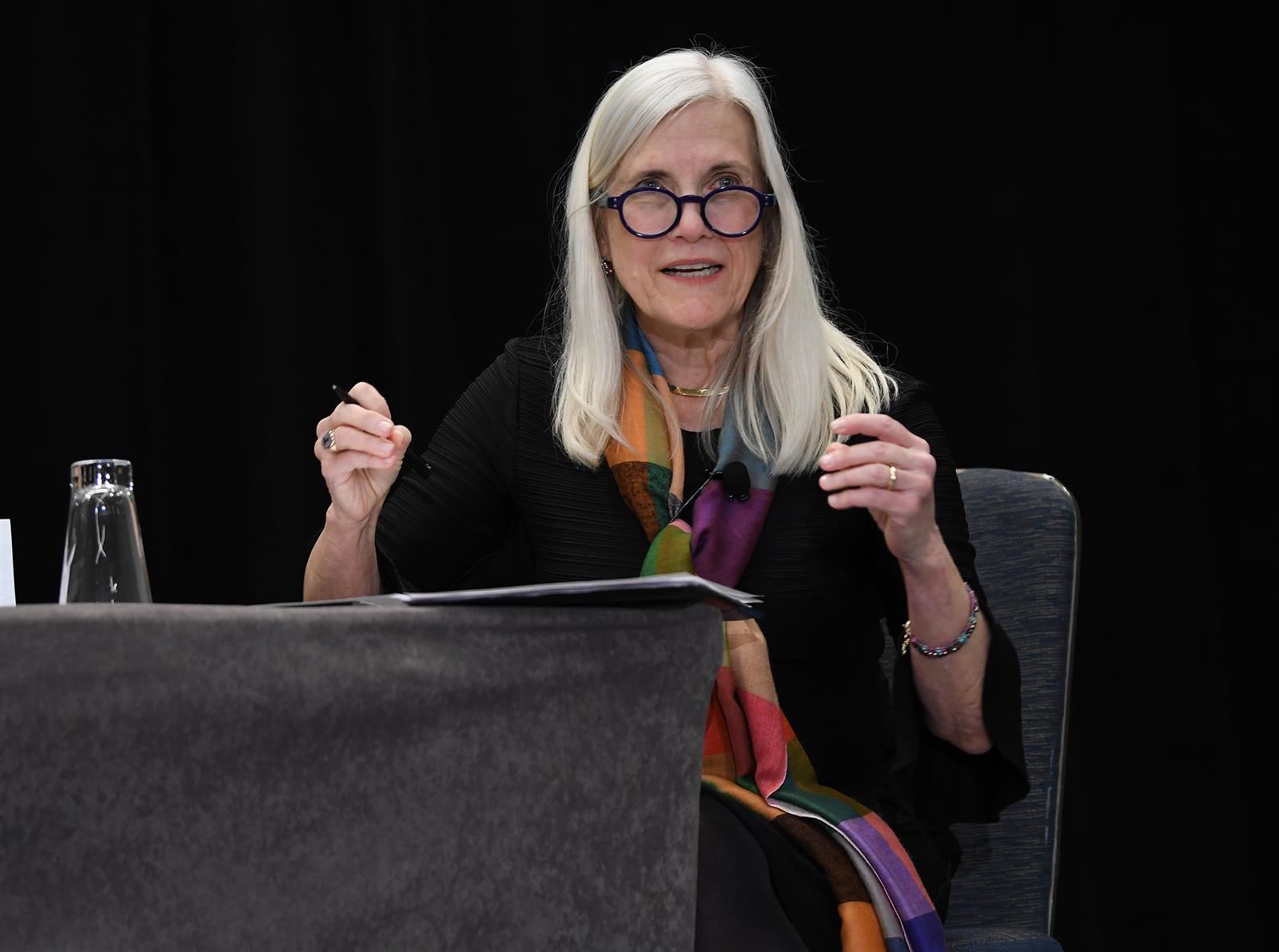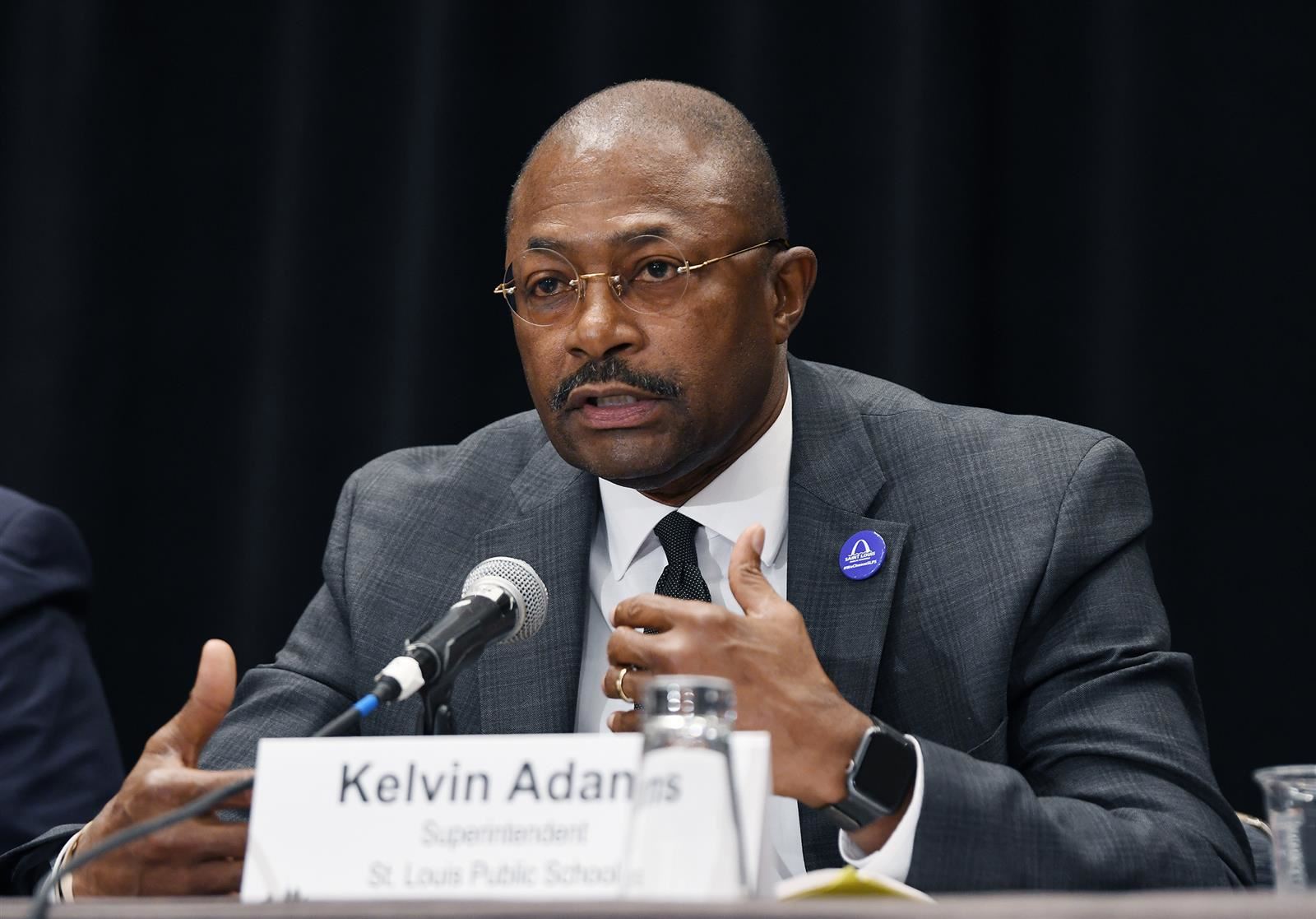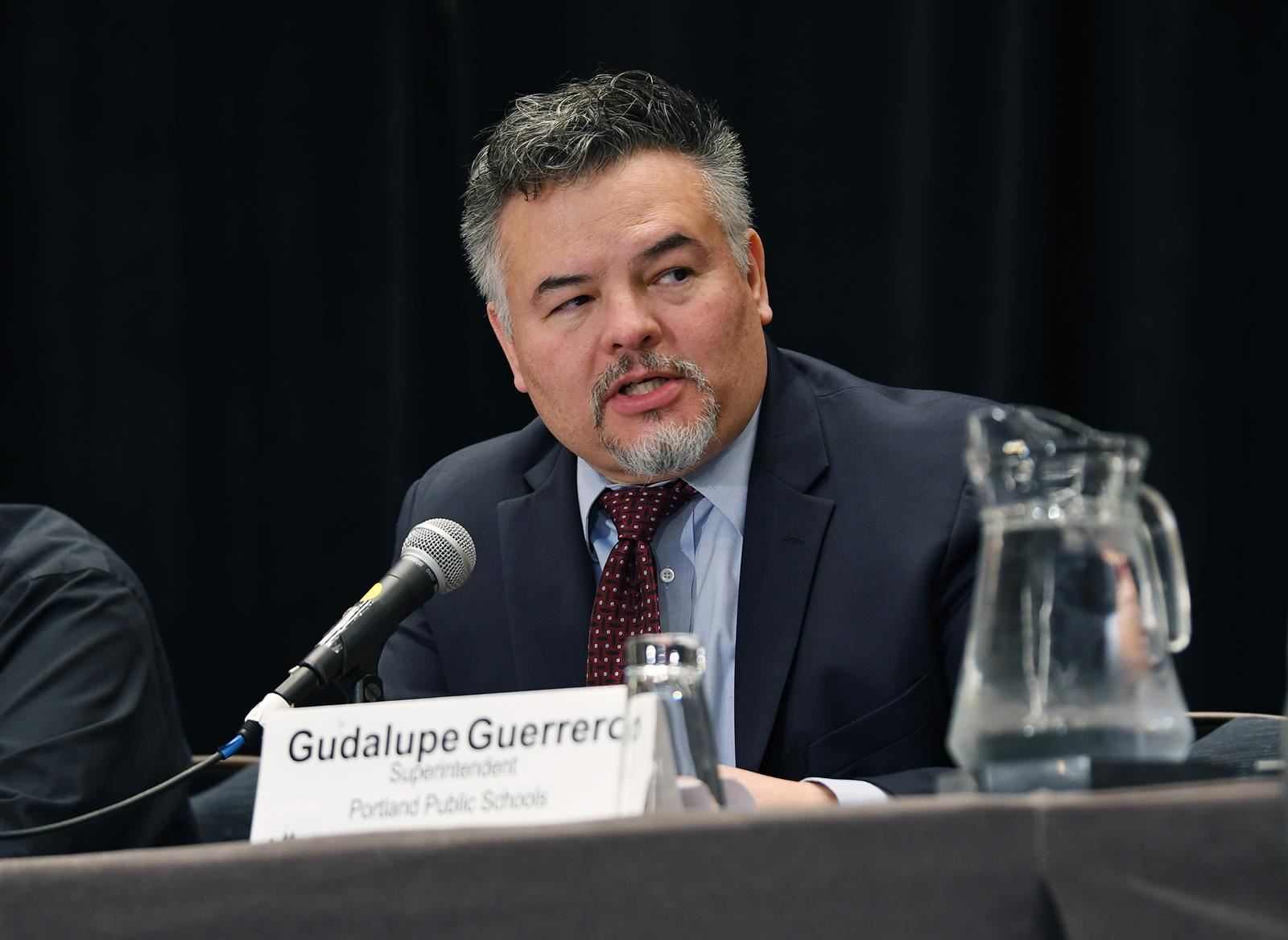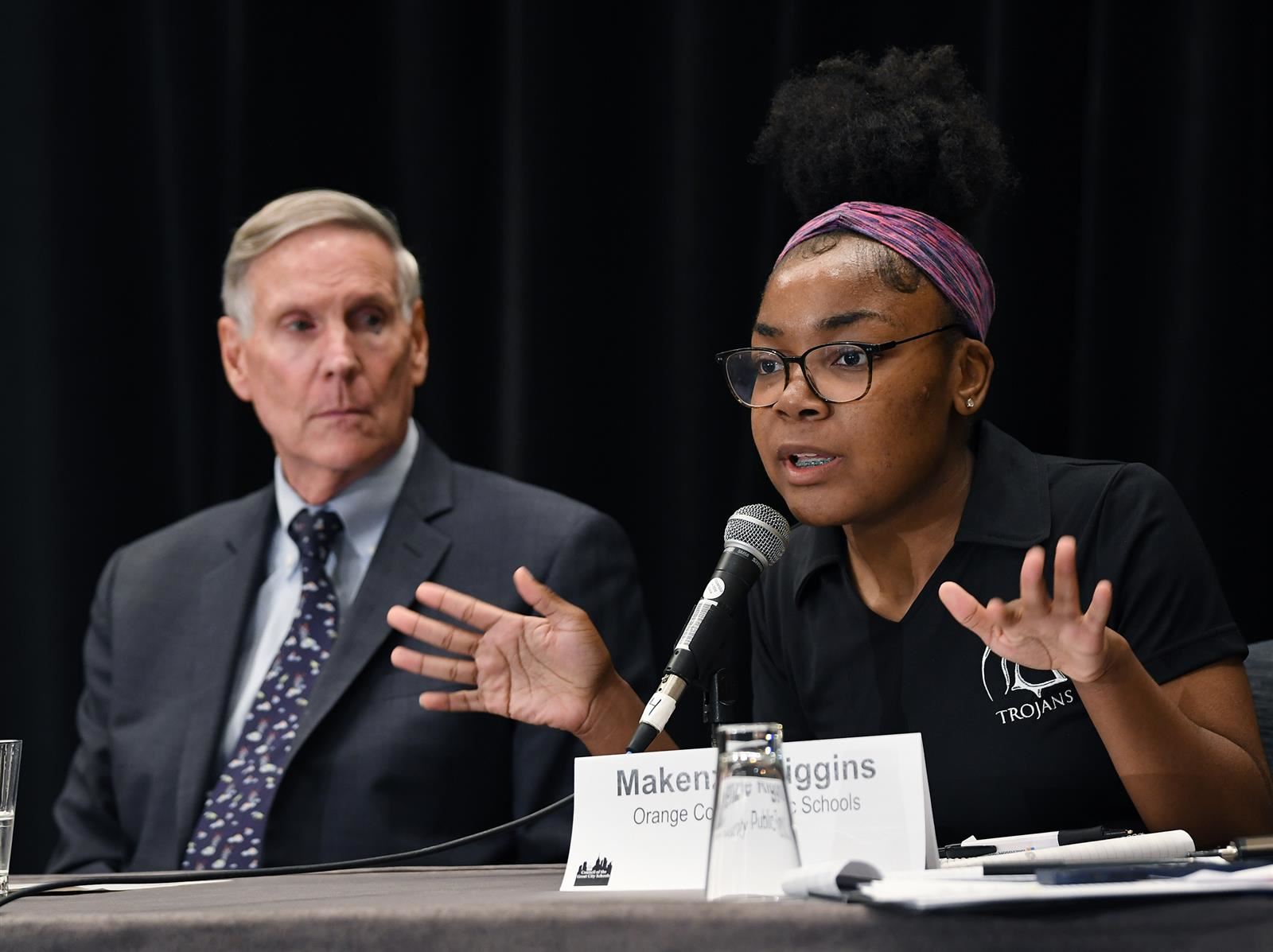- Council of the Great City Schools
- Politics and Public Education is the Focus of Council Town Hall
Urban Educator - November/December 2022
Page Navigation
- Students in Most Urban Districts Hold Steady in Reading on National Test
- CNN Correspondent, Immigration Advocate & Social Justice Activist Address Council
- Politics and Public Education is the Focus of Council Town Hall
- Detroit Superintendent Named Urban Superintendent of the Year
- St. Paul Leader Tenure Extended; Omaha, Columbus, Wichita, Aurora Leaders to Depart
- Philanthropist Donates Millions to Chicago, Cleveland, Detroit, Fresno and Louisville
- Voters Decide on Ballot Measures
- Legislative Column
Politics and Public Education Focus of Town Hall Meeting
-
 ORLANDO—The issue of politics and public education took center stage at a town hall meeting moderated by Beth Frerking, the editor-in-chief for Education Week, at the Council of the Great City Schools 66th Annual Fall Conference.
ORLANDO—The issue of politics and public education took center stage at a town hall meeting moderated by Beth Frerking, the editor-in-chief for Education Week, at the Council of the Great City Schools 66th Annual Fall Conference.Frerking noted that panelists Eric Gordon, CEO of the Cleveland Metropolitan School District, has led the district for 12 years, and Kelvin Adams, superintendent of St. Louis Public Schools, has led that school system for 14 years. Both leaders are stepping down, Gordon at the end of the school year and Adams the end of this month -- so Frerking asked the two departing leaders to share with superintendents who are early in their careers takeaways on how to engage with political leaders.
Gordon said that as superintendent he has worked hard to find ways to work across the aisle and noted that the district’s school improvement strategy, the Cleveland Plan, launched in 2012, was written under a Democratic mayor and that Democratic and Republican state legislators brought it to a Republican governor to be signed.
“And so even in the politics that we're experiencing right now I think still [there is opportunity] where we can attempt to bridge divides around how to serve our communities as well as possible by seeking those bipartisan opportunities any place that we can,” said Gordon.

Adams said that because his school district is in a blue city in a deeply red state, working across party lines and finding common ground was key. He said that most legislators don't understand a large urban school district’s context, so it was important to make sure policymakers had enough information to make the right kinds of decisions, particularly on issues that directly impact his school system, such as fair funding.
“So, I guess the lesson learned is to always try to make sure that you are working to inform legislators of what the local context is, number one; and number two, common ground, because they're issues that are germane to all kids, irrespective of what their ideologies might be.”
 Guadalupe Guerrero, superintendent of Oregon’s Portland Public Schools, believes that the charge for educational leaders is to make sure they are advocating for the most optimal conditions in their school communities, in order to ensure that schools and students can be successful. And often, that revolves around resources.
Guadalupe Guerrero, superintendent of Oregon’s Portland Public Schools, believes that the charge for educational leaders is to make sure they are advocating for the most optimal conditions in their school communities, in order to ensure that schools and students can be successful. And often, that revolves around resources. He said as the state’s largest school district, the Portland school system maintains very close relationships with state representatives. “Our typical focus tends to be around school funding,” said Guerrero. “Only recently has our advocacy started to result in a more realistic current service level.”
Frerking noted that Florida has been ground zero for hot-button issues in education, such as the teaching of gender identity and racism. “How do you support your educators, your principals, and still listen to the voices that clearly are being heard by the governor and others?” Frerking asked Teresa Jacobs, chair of Florida’s Orange County school board.Jacobs said district leaders have to be adaptable, but that there are certain things the school board is not willing to be adaptable on, including anything that would cause harm to the district’s children.
She said the governor’s and the state legislature’s recent actions -- banning the state’s school systems from talking and teaching anything having to do with gay and transgender issues in grades K-3 – has created so much confusion and so much fear.“And I worry tremendously,” Jacobs said, “not just about our teachers and their fear, but our students.”
Philadelphia school board president Joyce Wilkerson said the district hasn’t had to deal with hot-button issues such as critical race theory but has been very upfront about the fact that there is a lot of structural racism within the district.She said locally the big issue is funding. “We can’t raise our own taxes, so we run around hat in hand and so have to develop political relationships just to survive,” said Wilkerson.
Michael Casserly, the former executive director of the Council who is now a strategic advisor with the organization, noted that even in Washington, D.C., under various Democratic and Republican administrations, the Council always tried to maintain good relations with whatever administration was in power.
Casserly went on to say that a lot of legislation Congress passed over the past two years was helpful to schools, particularly the American Rescue Plan. He acknowledged, though, that there’s not a lot on the congressional agenda for the next two years, no matter who wins in the midterm elections.
“So, I think it's very possible if there's a split Congress, that is Republican on one side and Democrat on another, what we will likely see is loggerheads in the legislative process and it not resulting in any legislative accomplishments.”
The town hall panel also featured a student: Makenzie Riggins, a senior at Evans High School in Orange County Public Schools. She said an issue that concerns her is the lack of after-school buses at her school and noted that many teachers provide tutoring after school but students who don’t have transportation to get home cannot participate.
“They can't try to better their education and they can't try to get the help that they need from their teachers,” said Riggins. “They're forced to go home because of limited resources. So, I feel as if that's an issue that needs to be talked about and brought up in the conversation.”Orange County school board member Jacobs said not providing transportation for after-school programs is a problem, but said the district faces a dilemma of choosing between paying teachers or funding after school busing. “We have to work on [the issue] together, you are absolutely right,” she told Riggins.
Media Contact:
Contact Name
Contact@email.com
(000) 000-0000
Contact Name
Contact@email.com
(000) 000-0000
Contact Name
Contact@email.com
(000) 000-0000
Media Contact:
Contact Name
Contact@email.com
(000) 000-0000
Contact Name
Contact@email.com
(000) 000-0000
Contact Name
Contact@email.com
(000) 000-0000


